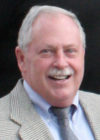HOME | ABOUT US | MEDIA KIT | CONTACT US | INQUIRE
HOME | ABOUT US | MEDIA KIT | CONTACT US | INQUIRE
The modern economy could use a better understanding of what those terms really mean.

The etiquette of formal introductions probably discourages trying to acquaint someone with 30 people all at once. Well, so much for formalities: I’d like to familiarize each of our readers with the honorees of our Icons of Education and Heroes in Healthcare awards, two key elements in this month’s edition of Ingram’s.
Some are public or private school administrators in K-12; some are deans and tenured faculty from public and private colleges and universities; some are hospital administrators, nurses, volunteers or member of professional and auxiliary staffs at small hospitals and large academic medical centers.
What could possibly connect all of them? In one word: Excellence. Each, in his or her own way, has gone the extra mile in their chosen fields to embrace concepts of organizational mission and customer service. The customer might be an incoming freshman or a graduate teaching assistant; the customer might be
a crash survivor in the emergency room or a cancer patient living his final hours.
But by their examples, these individuals have not just set standards for instruction and care—they’ve exceeded those standards.
One need only spend a few minutes on the phone with an automated response system, try special-ordering a burger with no onions, ask for plumbing guidance at the hardware store or—sorry to reinforce
the image, DMV, but you’ve earned it—try to renew a driver’s license to understand why excellence matters.
Most anyone with an MBA or liberal-arts education has heard the guidance that Aristotle issued nearly 2,350 years ago, about excellence not being an act, but a habit. Those who embrace that in all aspects of their lives somehow—shocker here—tend to be more successful in business, happier in their relationships, more philanthropic and more civically engaged.
We strive mightily not just to be a place where business leaders can find relevant content and build connections, but a trusted judge of executive excellence.
Don’t believe me? Find any list of successful business figures in this region—I’d suggest starting with Ingram’s 250 we published in September 2017 (see Pages 8-9 in this issue for an update or take a look at The Power Book, Pages 15-24).
How many of the people on that list can you identify as someone who doesn’t embrace excellence with the administration of their organizations? And while you’re at it, check out the companies they lead—how many of those companies are substandard with customer service?
This is not just workplace or self-improvement theory we’re dealing with here. America’s demographic tides—and the world’s—are coming in, and they’re bringing with them too many who fail to grasp the fundamentals of excellence. Starting with customer service.
This column would occupy hundreds of pages if I were to open the spigot on inordinately poor service.
For each great firm, there may be 25 or more mediocre ones and, arguably, as many pathetic ones. Among my greatest fears is seeing a noticeable increase in remarkably poor service and terrible attitudes. This may show my age or be considered profiling, but I’m genuinely nervous of what the future looks like when Baby Boomers exit the work force. We may not all be experts in technology, but boomers are, by and large, hard workers and they have defined the service economy.
Ingram’s strives mightily not just to be a place where business leaders can find relevant content and build valuable connections, but a trusted judge of executive excellence (Ingram’s 250, Women Executives-Kansas City, etc.), organizational excellence (the Corporate Report 100, the region’s Top 100 Private Companies, Best of Business Kansas City, etc.) and individual excellence (40 Under Forty, Top Doctors, Heroes in Healthcare, and of course, Icons of Education.
Our goal is to highlight the people and companies that are making things work in our corner of the country. If you know any of them, congratulate them. But do more than that—emulate them. We can all do more to make their excellence an inspiration for our own and to train the emerging generations
of what it takes to achieve excellence.
Leave a Reply